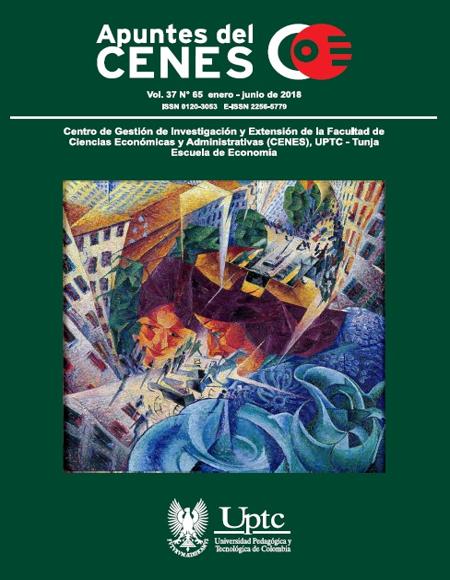Negative Revenue and Economic Degrowth

Abstract
The objective of the author in this text is to defend the following working hypothesis: the increasing use, alteration and extraction of natural resources, and currency speculation, generate different revenues but involve the subtraction of non-renewable resources and, in addition, generate a magnified and accelerated degradation of the environment, and produce social costs, so that revenues should be negative. The methodology used is to put forward a critical interpretation of the conventional concept of revenue and, based on heterodox and unconventional economic theories and someempirical evidence from secondary sources, to find a theoretical result, which consists of the negative revenue proposal. Specifically, the revenues from fossil fuels, gold, and money are discussed. Finally, some guidelines are shown on how negative revenue would work. The main implication of this study is that negative revenue leads to an economic policy oriented towards degrowth.
Keywords
bioeconomics, extractivism, entropy, revenue, interest, degrowth, incentives.
Author Biography
Freddy Eduardo Cante Maldonado
Doctor en Ciencias Económicas de la Universidad Nacional de Colombia. Profesor Titular de la Facultad de Ciencia Política, Gobierno y Relaciones Internacionales.
References
- Bastiat, F. (2004). Obras Escogidas. Madrid: Unión Editorial.
- Biblia. (2000, 15 de enero). Génesis. Recuperado de http://www.bibliacatolica.com.ar/genesis-1.html
- Bland, A. (2014, 14 de febrero). The Environmental Disaster, that Is the Gold Industry. Retrieved from http://www.smithsonianmag.com/science-nature/environmental-disaster-gold-industry-180949762/?no-ist
- Bonaiuti, M. (2011). From Bioeconomics to Degrowth: Georgescu-Roegen's "New Economics" in eight essays (First ed.). New York : Routledge.
- Boulding, K. (1966). The Economics of the Coming Spaceship Earth. En H. Jarret, Resources for the Future (pp. 3-14). Baltimore: Johns Hopkins University Press.
- Boulding, K. (1976). La economía del amor y el temor: una introducción a la economía de las donaciones. Madrid: Alianza.
- Cleveland, C. (1999). Biophysical Economics: From Phsiocracy to Ecological Economics and Industrial Ecology. En K. Mayumi, Bioeconomics and Sustainability: Essays in Honor of Nicholas Georgescu-Roegen (pp. 125-154). Northampton, Mass.: Edward Elgar.
- Daly, H. (1999). How Long Can Neoclassical Economist Ignore the Contributions of Georgescu-Roegen? En K. Mayumi, Bioeconomics and Sustainability (pp. 13-25). Northamptom, Mass.: Edward Elgar.
- European Comission. (2012, 18 de oct.). The Environmental Impact of Gold Production. Retrieved from http://ec.europa.eu/environment/integration/research/newsalert/pdf/302na5_en.pdf
- George, H. (1997). Progress and Poverty: An Inquiry in the Cause of Industrial Depressions and of Increase of Want with Increase of Wealth... The Remedy. New York: Cosimo Books.
- Georgescu-Roegen, N. (1971). The Entropy Law and the Economic Process. Boston: Harvard University Press. https://doi.org/10.4159/harvard.9780674281653 DOI: https://doi.org/10.4159/harvard.9780674281653
- Georgescu-Roegen, N. (1976). Energy and Economic Myths: Institutional and Economic Essays. Toronto: Pergamon Press. DOI: https://doi.org/10.2307/1056148
- Goldsmith, E. (1985). Is Development the Solucion or the Problem. The Ecologist, 210-219.
- Graeber, D. (2011). Debt: The First 5,000 Years. London: Melville House.
- Hardin, G. (1968). The Tragedy of the Commons. Science, 1243-1248. DOI: https://doi.org/10.1126/science.162.3859.1243
- Hardin, G. (1993). Living within Limits: Ecology, Economics, and Population Taboos. New York : Oxford University Press. DOI: https://doi.org/10.1093/oso/9780195078114.001.0001
- Helm, D. (2016). The Future of Fossil Fuels, Is it the End? Oxford Review of Economic Policy, 191-205. DOI: https://doi.org/10.1093/oxrep/grw015
- Hirsch, F. (1976). Social Limits to Growth. Cambridge Mass.: Harvard University Press. https://doi.org/10.4159/harvard.9780674497900 DOI: https://doi.org/10.4159/harvard.9780674497900
- International Agency Energy -IEA- (2013, 5 de oct.). International Agency Energy. Recuperado de www.iea.org.
- Keynes, J. M. (1990). The General Theory of Interest, Employment and Money. Chicago: Encyclopaedia Britannica.
- La-Boetié, E. (2000, 1 de enero). The Politics of Obedience: The Discourse of Voluntary Servitude. Retrieved from https://mises.org/library/politics-obedience-discourse-voluntary-servitude
- Latouche, S. (2015). Pequeño tratado del decrecimiento sereno. Barcelona: Icaria.
- Martínez, J. (2001). Economía ecológica y política ambiental. México: Fondo de Cultura Económica.
- Mayumi, K. (2012). The Origin of Ecological Economics: The Bioeconomics of Georgescu-Roegen. New York : Routledge.
- Miernyk, W. (1999). Economic Growth Theory and the Georgescu-Roegen Paradigm. En K. Mayumi, Bioeconomics and Sustainability (págs. 69-82). Northampton, Mass: Edward Elgar.
- Platón. (1998). Protágoras. Madrid: Alianza.
- Polanyi, K. (2001). The Great Transformaton: The Poltical and Economic Origins of our Time. Boston: Beacon Press.
- Qingmin, M. (2016). The Impacts of Fracking on the Environment: A Total Environmental. Science of the Total Environment, 953-957. DOI: https://doi.org/10.1016/j.scitotenv.2016.12.045
- Ramonet, I. (2015, 1 de junio). La nueva geopolítica del petróleo. Recuperado de http://www.monde-diplomatique.es/?url=editorial/0000856412872168186811102294251000/editorial/?articulo=9717e131-315e-4440-a96d-e69686340af6
- Ricardo, D. (1993). Principios de economía política y tributación. México: Fondo de Cultura Económica.
- Russi, D. et al. (2003). Deuda ecológica: ¿quién debe a quién? Barcelona: Icaria.
- Sábato, E. (1951). Hombres y engranajes. Buenos Aires: Emecé.
- Schumacher, E. F. (1973). Small is Beautiful (First ed.). New York: Harper Collins.
- Sen, A. (1993). Markets and Freedoms: Achievements and Limitations of the Market Mechanism in Promoting Individual Freedoms. Oxford Economic Paper, 519-541. https://doi.org/10.1093/oxfordjournals.oep.a042106 DOI: https://doi.org/10.1093/oxfordjournals.oep.a042106
- Shaikh, A. (2004). The Power of Profit. Social Research, 371-382. DOI: https://doi.org/10.1353/sor.2004.0046
- Suarez, A. (2013). La minería colonial del siglo XXI, no todo lo que brilla es oro. Bogotá: Aurora.
- Ucsusa. (2015, 1 de dic.). Union of Concerned Scientist. Recuperado de falta el link
- Veblen, T. (1899). The Theory of the Leisure Class: An Economic Study of Institutions. New York: MacMillan.
- Worldgoldcouncil. (2015, 13 de agosto). World Gold Council. Retrieved from http://www.gold.org/supply-and-demand/gold-demand-trends
Downloads
Download data is not yet available.
